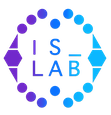E-commerce is booming with increasing accessibility of the internet in almost every corner of the world. In a new generation of e-commerce, agent-based e-commerce applications are becoming an attractive paradigm. Software agents have demonstrated their tremendous potential in conducting various tasks in e-commerce such as comparison-shopping, payment, brokering, negotiation, bargaining, mediation, distribution, sales promotion, etc.
The realization of the Semantic Web will facilitate the growth of both e-commerce and agent technologies. Differences in business terminology will be resolved using ontologies, and data will be interchanged using translation services. Auctioning, negotiations, and drafting contracts will be carried out automatically (or semi automatically) by software agents.
Semantic Web agents will make use of the following technologies:
- Metadata will be used to identify and extract information from Web sources.
- Ontologies will be used to assist in Web searches, to interpret retrieved information, and to communicate with other agents.
- Logic will be used for processing retrieved information and for drawing conclusions.
Defeasible reasoning is a rule-based approach for efficient reasoning with incomplete and inconsistent information, situations that might easily arise in a volatile environment such as the Web. Such reasoning is, among others, useful for the modeling of business rules and policies, where rules with exceptions are often used, or where decisions must be made even when other players may not be able (e.g. due to communication problems) or willing (e.g. because of privacy or security concerns) to provide information. Furthermore, potential applications of rules with exceptions include security policies, personalization, brokering, bargaining, and automated agent negotiations.
This project aims at building agent-based Semantic Web e-Commerce application prototypes using the defeasible reasoning formalism. To this end we will:
- Model agent behavior specifications concerning various Semantic Web enabled e-Commerce applications, such as business rules, electronic contracts, agent brokering and negotiation, in terms of defeasible reasoning.
- Develop an end-product defeasible reasoning system for the Semantic Web, by extending and improving a working prototype we the Greek partners have recently developed.
- Develop and test prototypes of the modeled agent-based Semantic Web applications using the defeasible reasoning system we have built.
Partners
- Intelligent Systems group, Dept. of Informatics, Aristotle University of Thessaloniki, Greece
- Nick Bassiliades
- I. Vlahavas
- Efstratios Kontopoulos
- George Meditskos
- Information Systems Laboratory, Institute of Computer Science, Foundation for Research and Technology, Hellas (FORTH), Greece
- Grigoris Antoniou
- Antonis Bikakis
- Yannis Tzitzikas
- DKE Research Division, School of Information Technology & Electrical Engineering, University of Queensland, Brisbane, Australia
- Guido Governatori
- Shazia Sadiq
- Robert M. Colomb
- Vineet P. Nair
- Insu Song
- Duy Pham Hoang
- Singular Logic S.A.
- Kostas Kalampoykas


